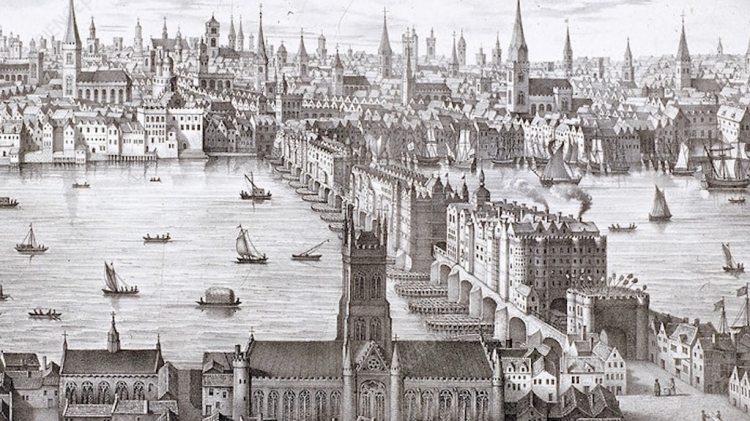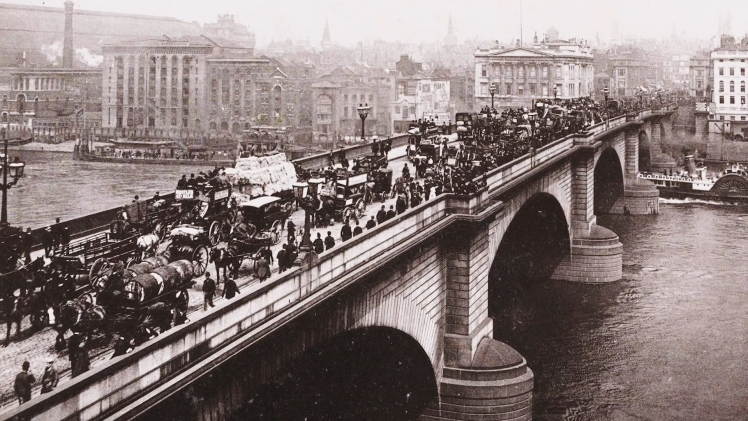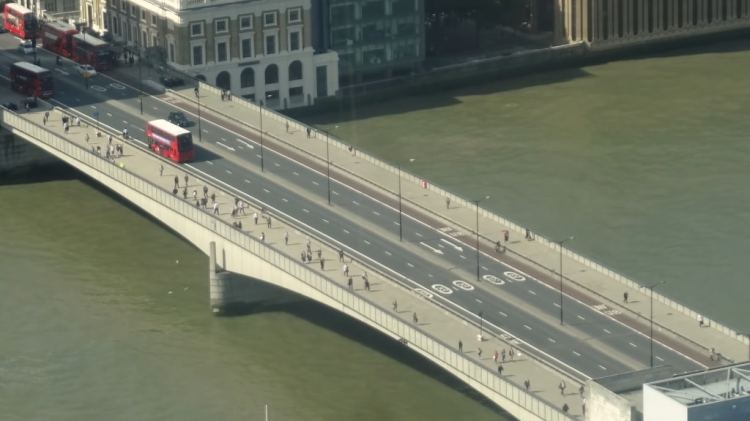The Convoluted History of London Bridge
Comedian Jay Foreman takes a look at the convoluted history of London Bridge over the centuries in a traversing installment of his Unfinished London" series.
Why is London Bridge called London Bridge? Because it's in London. But there are lots of bridges in London. London Bridge was the first. But it looks really modern. Because it was rebuilt.Are there lots of really interesting things about London Bridge and its history and its future the unravel into a medium-sized documentary about the river thames and its crossings in general? Yes.
Foreman first examines the origin of the bridge in the 13th century, explaining that it was a living bridge, meaning that it housed residences, churches, shopping, along with a crossway over the River Thames. This, at the time, was the only bridge to do so.

In 1750 the Westminster Bridge was opened, as did the Blackfriars Bridge in 1769. These bridges also crossed the Thames, giving residents a choice where they previously had none. With this fresh sense of competition in play, the city removed the houses and churches from London Bridge in an attempt to update it. Despite the efforts, Old London Bridge was removed to make way for New London Bridge.

In the 1960s, London Bridge was trailing behind and the decision was made to put New London Bridge up for sale. It was purchased by Robert P. McCulloch of Arizona, who brought the bridge over to a planned community in Lake Havasu, Arizona where it became a local attraction. However, back in London, the New New London Bridge was unremarkable at best.
The necessary rebuild of London Bridge in the late 60s coincided with a flash-in-the-pan fashion for brutalist functional architecture. New New London Bridge completed in 1973 is a wide grey concrete slab devoid of even the slightest hint of its rich history. It's impressive for the sheer amount of nothing there is to say about it. With London Bridge getting more boring every century the next one coming in 2182 will likely be made entirely of beige jumpers.
